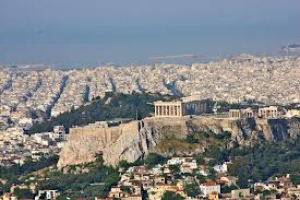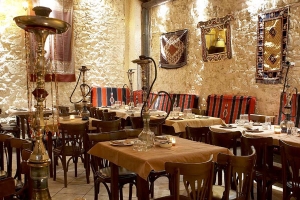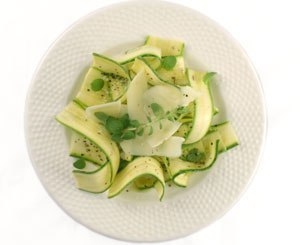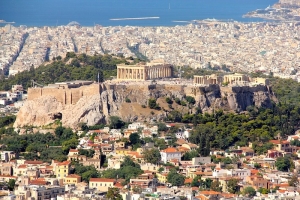Returning home after a fun time away is always bittersweet – I’m really glad to be back in my own bed, but somehow wish I was still on a beach somewhere…
Over the past week, I really noticed how ‘far away’ Athens feels from the rest of Greece. Of course, we often hear people outside the capital say they could never live in Athens, not with the crowds, the noise, the traffic, the chaos. And it seems the further away you get from the city, the more dramatic is this response. My answer has always been (usually spoken to myself), ‘sure, but Athens is like a quiet country town compared to Chicago, San Francisco, Toronto, Sydney...’
After hopping around Crete over the past days, I understand this more clearly. In places like Agios Nikolaos, Elounda, in the villages around Chania – Athens seems like a world away. And the pace of life in these small, ‘authentic’ Greek locales does make Athens seems like a chaotic metropolis. There are days in these rural zones where, I’m sure, not much happens. And where not much has changed in generations.
I suppose the truth is that everything is relative – relative to where you’ve just come from and relative to where your life’s experience has decided is the ‘comparison’.
The same goes for Greece’s beaches. Some of us have unwittingly become acclimatized to the beauty around us – so much so, that I have often found myself saying ‘oh look, those tourists think that (tiny, average) beach is wonderful – how unfortunate’. But really, relative to the colder, wetter, less ‘beachy’ places they’ve come from, those (tiny, average) beaches are a little piece of paradise for many people. And why shouldn’t they be!
So I am really trying to avoid this ‘relativity trap’ – the trap of thinking ‘gosh, Athens is so loud and busy’, after returning from an idyllic getaway - and instead remembering why I moved to this ‘energetic and alive’ city.
That, and also thinking about where I might go next time…
Until next week,
Jack
In this weekly space, keep up with ‘Jack’ as he navigates daily life in Athens… Anecdotes, stories, hits & misses, the good, the bad and, well, the rest…











